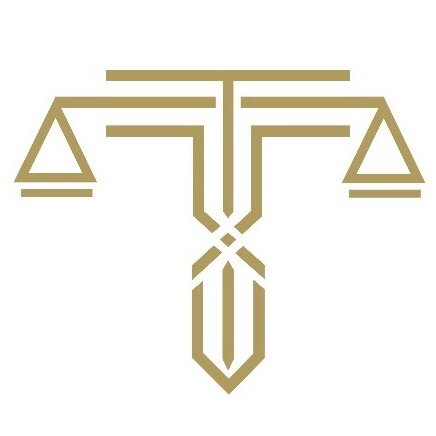Best Debt & Collection Lawyers in Dammam
Share your needs with us, get contacted by law firms.
Free. Takes 2 min.
List of the best lawyers in Dammam, Saudi Arabia
Saudi Arabia Debt & Collection Legal Articles
Browse our 1 legal article about Debt & Collection in Saudi Arabia written by expert lawyers.
- Options For Managing Debt in Saudi Arabia
- While expanding credit is usually a crucial component of development, any company conducting business in the competitive Saudi Arabian market must first properly manage its receivables. Commercial defaults and unpaid bills seriously affect long-term company stability, profitability, and cash flow.Many companies without a clear escalation plan or uninformed of the... Read more →
About Debt & Collection Law in Dammam, Saudi Arabia:
Debt and collection law in Dammam is governed by the regulations set by the Saudi Arabian Monetary Authority (SAMA) and court rulings in line with Islamic Law (Sharia). SAMA's regulations outline strict guidelines for lending practices and debt collection, requiring transparency, fair practices, and ethical treatment of debtors. Persistent non-payment of debt can possibly result in the debtor being summoned to a Saudi court, where further actions will be prescribed.
Why You May Need a Lawyer:
Dealing with debt disputes and collection issues can be complicated and stressful. Individuals and businesses often need legal help to understand their rights, navigate through the complexities of the laws, negotiate with creditors, and represent their interests in court if necessary. A lawyer can also guide you on how to respond to debt collection efforts and protect you from unfair or abusive collection practices.
Local Laws Overview:
According to the regulations put forth by SAMA, creditors should adopt a balanced and ethical approach when dealing with their debtors. They are obliged to state the terms of the debt clearly, avoid harassment, threat, or public humiliation when collecting a debt. If a debtor defaults on their debt, a legal notice is issued. On non-compliance, further legal action can be initiated, including seizure of assets, court orders for repayment, or even a prison sentence in severe cases, as under Sharia, debt non-repayment is seen as a serious offense.
Frequently Asked Questions:
What regulations protect debtors in Saudi Arabia?
SAMA guidelines protect debtors by enforcing rules about fair treatment, transparency, and confidentiality. It prohibits creditors from using threats, harassment, public humiliation, or misleading tactics to collect debt.
What happens if a debtor does not repay a loan?
If a debtor does not repay a loan, the creditor can file a case in a Saudi court, which can lead to court orders for repayment, seize assets of the debtor, and even result in a prison sentence if the case is severe.
How can a lawyer help in a debt collection issue?
A lawyer can help understand the legal aspects of the debt, negotiate with creditors, represent your interest in court, and guide you on how to respond to debt collection efforts.
Are there any restrictions on the amount a debt collector can charge?
While there are no specific restrictions outlined in the SAMA guidelines, any fees or charges imposed by the collection agency must be reasonable and agreeable to both parties.
Can a debtor be sent to jail for not paying a debt?
It is possible in severe cases of non-payment for a debtor to face a prison sentence. This depends on the seriousness of the case and is determined by the court.
Additional Resources:
For additional help and resources, you can refer to the official SAMA website to understand regulatory guidelines, contact the Consumer Protection Department for complaints or grievances, and seek help from legal clinics or lawyers’ associations for legal counsel.
Next Steps:
If you're facing a debt or collection issue, it's important to find a legal expert experienced in this field to understand your rights and obligations. Prepare your case well by gathering all relevant financial documents. Understand your rights as per SAMA guidelines and don't hesitate to report any unethical collection practices to the Consumer Protection Department. Finally, be proactive in resolving the issue - communicate with your creditor, propose a repayment plan, and take legal action if necessary.
Lawzana helps you find the best lawyers and law firms in Dammam through a curated and pre-screened list of qualified legal professionals. Our platform offers rankings and detailed profiles of attorneys and law firms, allowing you to compare based on practice areas, including Debt & Collection, experience, and client feedback.
Each profile includes a description of the firm's areas of practice, client reviews, team members and partners, year of establishment, spoken languages, office locations, contact information, social media presence, and any published articles or resources. Most firms on our platform speak English and are experienced in both local and international legal matters.
Get a quote from top-rated law firms in Dammam, Saudi Arabia — quickly, securely, and without unnecessary hassle.
Disclaimer:
The information provided on this page is for general informational purposes only and does not constitute legal advice. While we strive to ensure the accuracy and relevance of the content, legal information may change over time, and interpretations of the law can vary. You should always consult with a qualified legal professional for advice specific to your situation.
We disclaim all liability for actions taken or not taken based on the content of this page. If you believe any information is incorrect or outdated, please contact us, and we will review and update it where appropriate.












